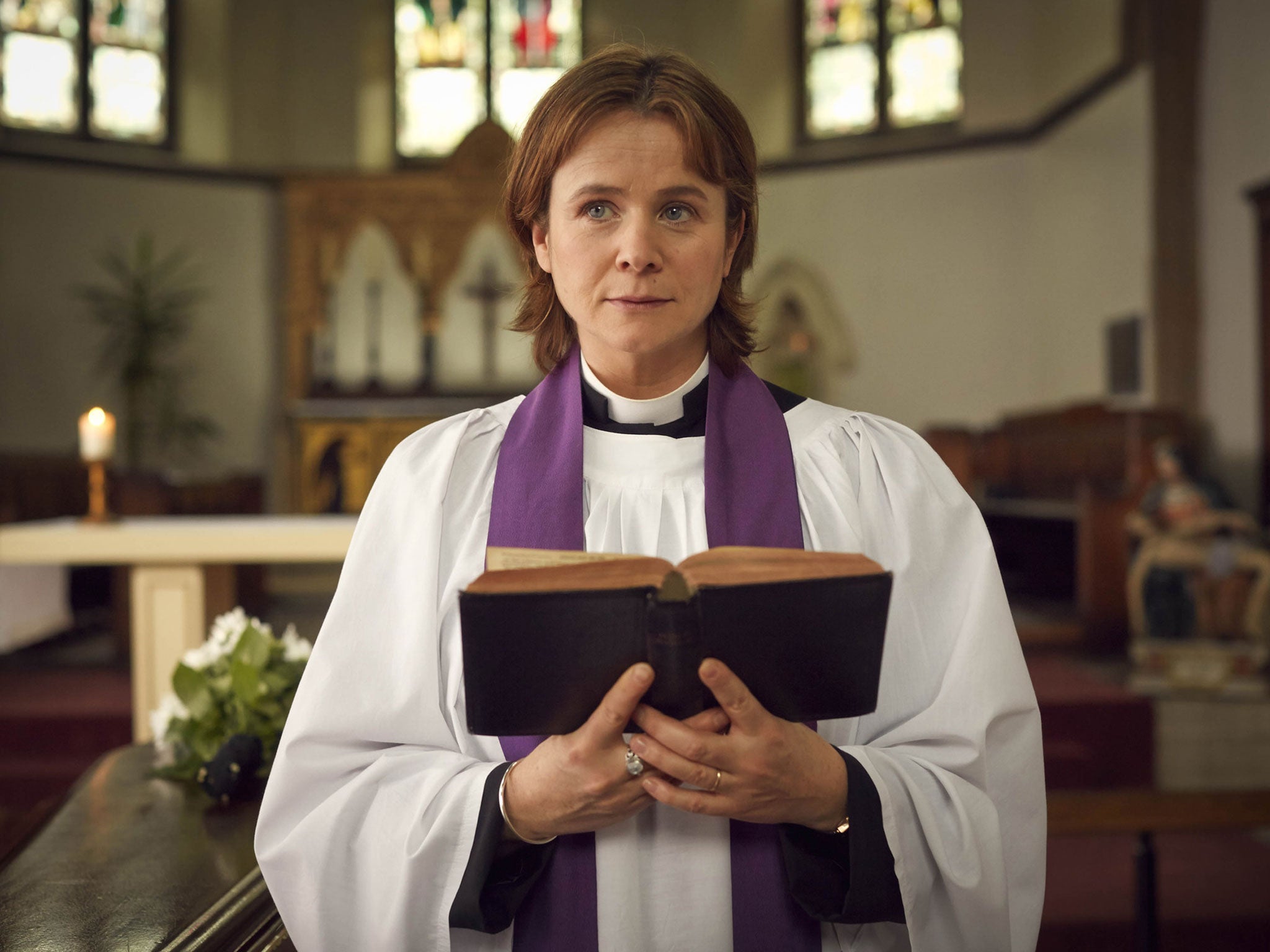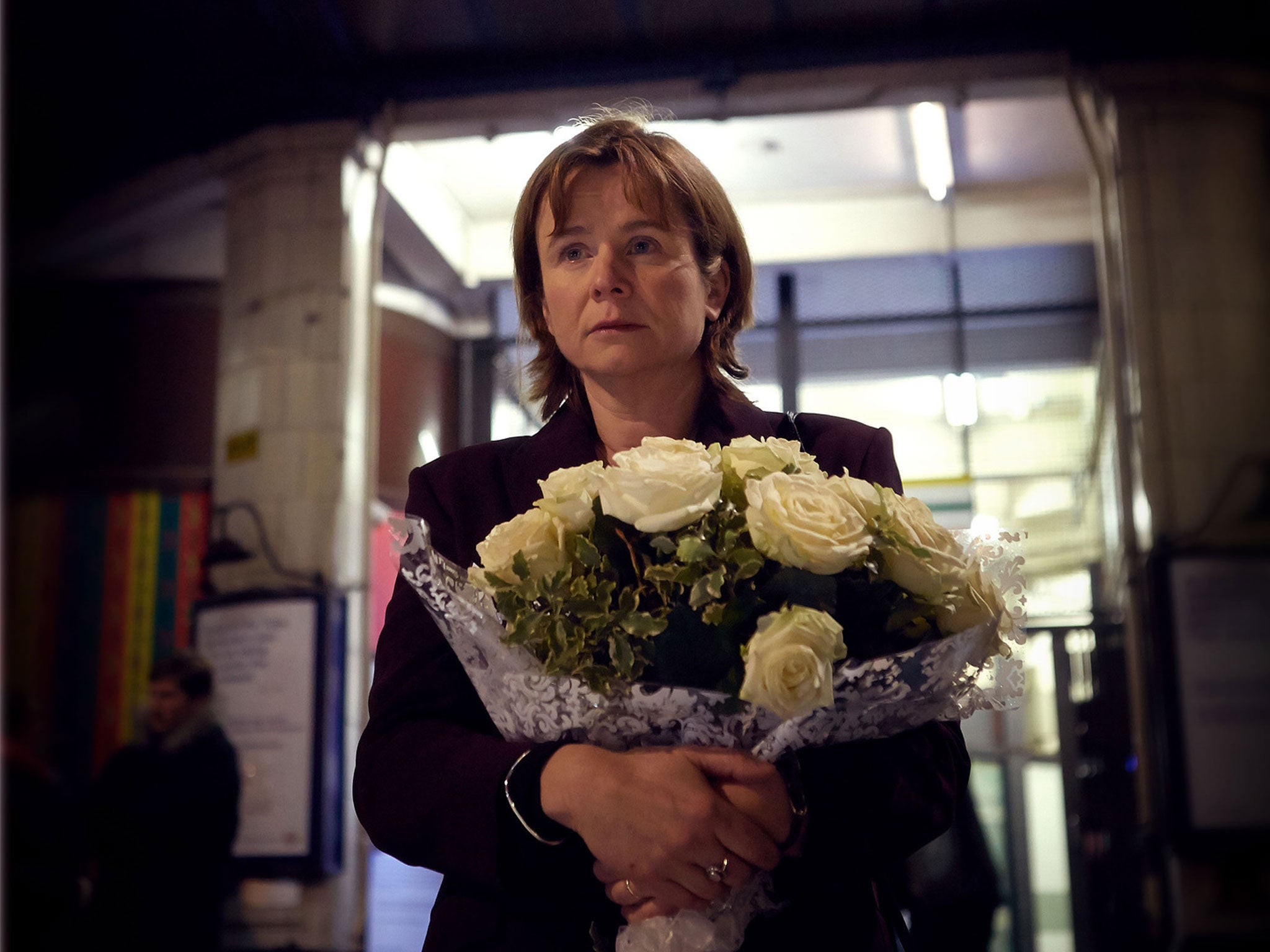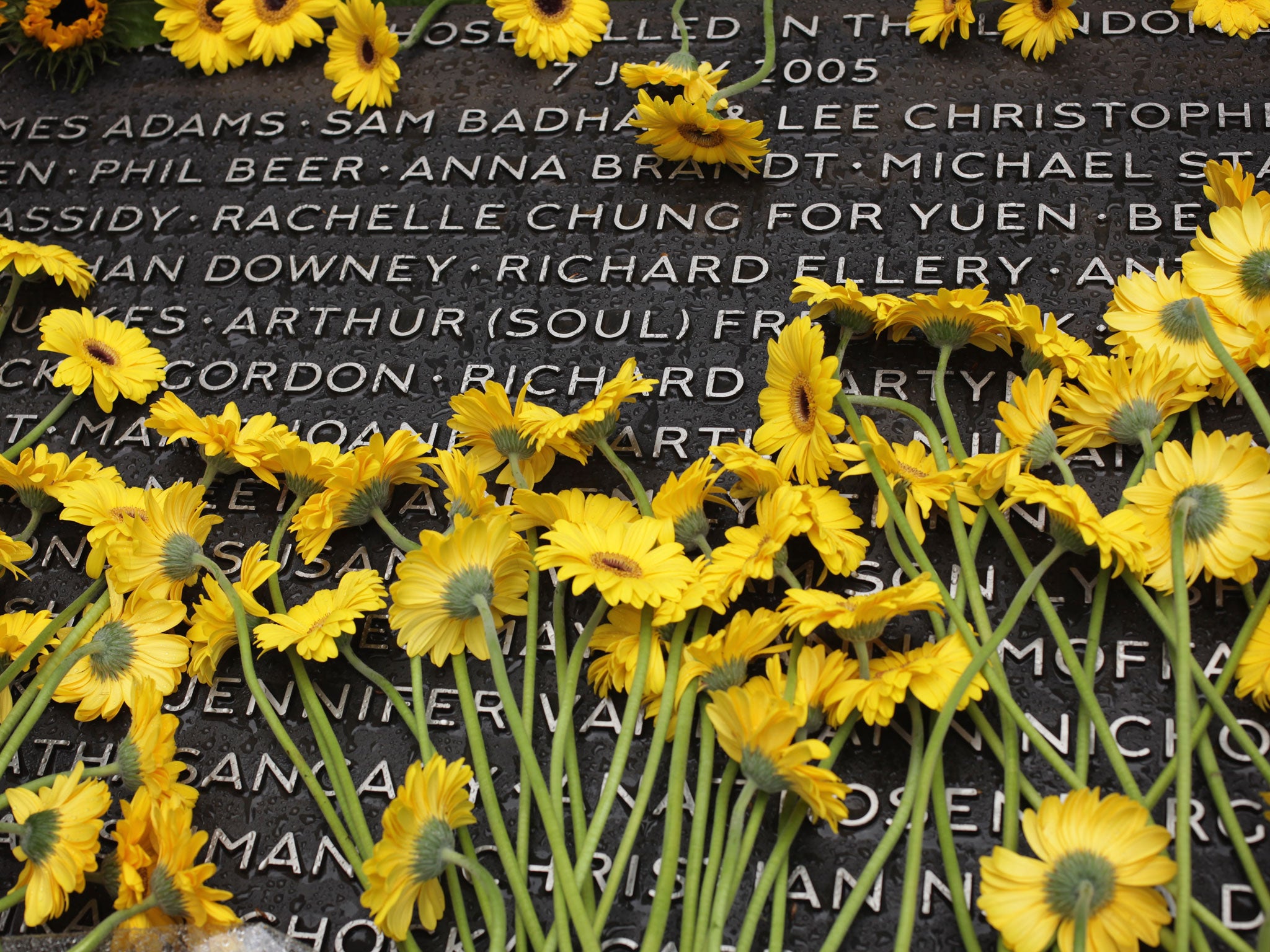A Song For Jenny: How a vicar's grief and anger inspired a BBC drama on the 7/7 bombings
Emily Watson fought back tears at a Bafta screening of the film

Your support helps us to tell the story
From reproductive rights to climate change to Big Tech, The Independent is on the ground when the story is developing. Whether it's investigating the financials of Elon Musk's pro-Trump PAC or producing our latest documentary, 'The A Word', which shines a light on the American women fighting for reproductive rights, we know how important it is to parse out the facts from the messaging.
At such a critical moment in US history, we need reporters on the ground. Your donation allows us to keep sending journalists to speak to both sides of the story.
The Independent is trusted by Americans across the entire political spectrum. And unlike many other quality news outlets, we choose not to lock Americans out of our reporting and analysis with paywalls. We believe quality journalism should be available to everyone, paid for by those who can afford it.
Your support makes all the difference.It’s almost ten years since Julie Nicolson, a Bristol vicar, received the shattering news that her daughter Jenny had been murdered in the July 7 London bombings.
Unable to reconcile her grief and anger with her faith, Julie resigned from her parish post. Instead she poured her heartache into an unflinching memoir, A Song For Jenny, which has been turned into a major BBC1 drama, marking the 10th anniversary of the attacks.
But Ms Nicolson still cannot bring herself to offer forgiveness for Mohammad Sidique Khan, the suicide bomber who killed 24 year-old Jenny in the Edgware Road station attack.
“I can’t pretend I have much forgiveness in my heart for the person who took my daughter’s life,” Ms Nicolson said after a Bafta screening of the film, which stars the Oscar-nominated actress Emily Watson as the mother searching for the truth about her daughter’s final moments.

“I don’t feel it’s my right and privilege to offer forgiveness. The only person who can do that is my daughter who is not here,” said Ms Nicolson, who stepped down as priest of two churches in Bristol, St Aidan's and St George’s, nine months after the attacks.
“All we can do is open our eyes and look at the world and meet humanity with humanity. I had to work within myself at not hating and I am quite honest about that fight but I don’t trouble myself to think about forgiveness.”
The film captures the tragic twist of fate which led Jenny Nicholson to take the eastbound Circle line service, which she boarded at Paddington station, in order to get to work, because of a fault on the Piccadilly line. She had phoned her boyfriend, James White, minutes earlier.
Adapted by the award-winning Irish playwright Frank McGuinness, the 75-minute drama, which will be screened on Sunday July 5, follows the Nicolson family’s journey from denial that their daughter could have been taken from them, through to anger and the mourning process.
Sidique Khan is shown briefly holding a rucksack on the train but his face is not seen and the blast is not recreated. The film, dedicated to the memory of all 52 victims who died in the suicide bombings, instead interweaves news footage of the aftermath.
“The bombers didn’t go out to kill a particular person. Those who survive and those who are killed, it’s a matter of luck,” said Ms Nicolson. “When a big disaster happens, it’s individuals lives who are torn apart, sometimes that gets a bit lost within the hype about the event itself.”
Ms Nicolson’s faith in humanity was restored by a Black Cab driver who drove her from London to her sister’s home in Reading and refused payment at the height of her grief. She has tried to track the good Samaritan down.
“He asked if I had a picture of my daughter but I didn’t ask his name. I tried and tried to find him afterwards. Even Ken Livingstone, who was Mayor, helped and they put a notice in weekly taxi drivers’ journal.”
She concluded: “Perhaps he needed to be anonymous. It was the kindness of strangers. Each of the 52 families will have similar experiences. But I will never forget him.”

Emily Watson fought back tears at the screening, recalling that she was pregnant with her daughter when 7/7 took place. The actress knew she had to take the role after reading the first page of the script. “As a Londoner who was in the city on the day, when I received the script it felt like a call to duty. Living in London is an act of love and you have to join in, you have to co-operate. What happened on that day was a total violation against all that.
“I have children and I couldn’t begin to contemplate the thought of what happened to Julie’s daughter happening to them. It was such a powerful story.”
Although Ms Nicolson has not rejoined the church, she may have stumbled upon a new career as a writer. McGuiness praised her memoir, saying: “Julie is a magnificent writer. She has a writer’s instinct and her book goes beyond anything I’ve read as a testament to violent grief.” Ms Nicolson said she entrusted her book to McGuiness to adapt as she had studied his plays as an English student.
Join our commenting forum
Join thought-provoking conversations, follow other Independent readers and see their replies
Comments